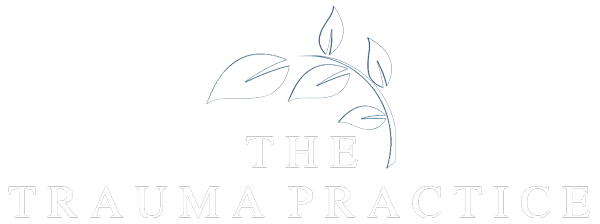
Addiction difficulties might cover a wide range of substances including, alcohol, tranquilizers, stimulants, cannabinoids, club drugs (MDMA), opioids, steroids, dissociative drugs (Ketamine) and hallucinogens. Drug misuse in the UK is the highest of all European countries. 7% of adults in England regularly drink alcohol at levels above the recommended amount. It is estimated that over half a million people in the UK suffer from alcoholism. Addiction difficulties related to drug and alcohol abuse cause mental health difficulties, behavioural disorders and physiological difficulty.
During the Covid-19 pandemic we are being asked to stay at home and self-isolate. This presents different difficulties for different people. If you are an addict in recovery the Covid-19 situation presents a unique set of difficulties. This article offers self-help for someone self-isolating who suffers from addiction.
Difficulties you might have as an addict in lockdown.
- You might have difficulty obtaining prescription drugs for detoxification purposes
- You might spend lots of time on your own – spending time on your own with your sober self can be a new and scary experience
- If you are early in recovery you might not have set up extensive recovery capital
- Getting access to your support network might be difficult – Your support network might include AA, CA, NA meetings – Local doctor – Sponsor – Hospital treatment – Family – Friends – Sporting facilities
- Financial difficulties
- Mental health difficulties which you have recently become more prominent due to your newly found sobriety

Access to fellowship through online meetings
Fellowship is often used to describe the meetings you might attend to help with addiction difficulties. These meetings sometimes described as (The Rooms) might include Alcoholics Anonymous (AA), Cocaine Anonymous (CA), Narcotics Anonymous (NA) or Co-Dependents Anonymous (CoDa). AA describes itself as a fellowship of men and women who share their experience, strength and hope with each other that they may solve their common problem and help others recover from alcoholism.
You may have attended fellowship meetings prior to Covid-19 lockdown on a face to face basis. Due to social distancing group meetings are no longer allowed meaning accessing this support network has changed. Although many meetings have been temporarily cancelled you can gain access to online meetings. Online fellowship meetings are offered online on Zoom. In order to access online meetings, you will need to Download Zoom
Although meetings online lack elements of face to face group meetings they can still provide a great deal of support from the safety and comfort of your own home. You will not be able to carry service – service describes duties you might carry out to help the meeting like giving out sobriety chips – making tea or putting out chairs. You will not be able to physically hug other group members which is a source of comfort and greeting in face to face meetings.
Links to fellowship websites:
- Coda - https://coda.org/
- Alcoholics Anonymous - https://www.alcoholics-anonymous.org.uk/
- Narcotics Anonymous - https://ukna.org/
- Cocaine Anonymous - https://cocaineanonymous.org.uk/
WhatsApp Gratitude List
There are a number of regular practices which can assist with addiction. These might include a moral inventory or gratitude list. You can set up a WhatsApp group to share ideas and what you are grateful for.

An online ‘Big Book’ club
Many of the principles of all the fellowship groups are underpinned by the principles in the Alcoholics Anonymous (Big Book) by Bill W. You could set up your own Big Book meeting on Skype or Zoom including people you have met previously at meetings. If you are new to recovery you could join an online meeting and ask some of the members if they are interested in setting up a ‘Big Book’ club. You might start with reading a chapter from the book and then discussing how the chapter resonates with your own experience and what you took from it. You can of course read the big book yourself and use it as a go to resource.
Sponsor
A sponsor in terms of fellowship describes a person who is in recovery themselves who can support you, in your own recovery. If you usually attend fellowship meetings you will probably already have a sponsor. Maintaining regular contact with your sponsor via phone, social media or online meetings can help to support you especially if you are self-isolating on your own. If you do not have a sponsor you can join an online meeting and explain that you are looking for a sponsor. You can also call the Alcoholics Anonymous Hotline. The details are available at the following link. https://www.alcoholics-anonymous.org.uk/Home

Addiction Counselling
If you are suffering from addiction difficulties you may have passed through a number of different stages in terms of making changes in your life regarding your addiction. These stages may have included denial, contemplation, preparation, taking action to stop addictive practices and using. You might be in the maintenance stage of your recovery where the focus is on maintaining your new life and building recovery capital. You may have used a number of different supports to help you which may have included CGL, fellowship, addiction counselling as well as family and friends. Addiction counselling is still available even in lockdown in the form of online therapy. We offer Addiction Counselling online. Contact us today if you need support for your addiction. If you have already stopped using you have already taken the most important and difficult step in relation to your recovery. For many people just stopping using is where recovery begins and ends. This can leave you feeling better initially. After time you might become what is called a ‘dry alcoholic’. This means that you have all of the difficulties which contributed to your addiction in the first place. Getting profession help in the form of psychotherapy and addiction counselling can help you process some of these difficulties enabling you to continue to build a new life in a meaningful fulfilling way. Learn more about Addiction Counselling.

Having a Spiritual Based Practice
Withdrawing from any substance can be difficult. Withdrawal might include physical and psychological difficulties. Having a spiritual based practice can help you to relax when in early recovery. A spiritual based practice might include meditation, tai chi, yoga or qigong. All of these spiritual based practices can help calm the mind and body. Having such a practice helps you to breath in a more relaxed way and calms our internal dialogue. When we are able to breath in a relaxed way it calms our nervous system and helps us to relax. This is really important when we are beginning a new life without the crutch or a mind-altering drug. It is important to carry out a spiritual based practice on a regular basis rather than only when you are feeling anxious or stressed. Getting the most from your practice depends on carrying it out regularly and gives you the opportunity to just be in your body in a relaxed way rather than do all of the time. For some people this is unfamiliar and difficult. However, with regular practice you will find it becomes an invaluable support resource. A great channel to follow and practice Yoga whilst at home is Yoga with Adrienne link

Exercise
Exercise might be something that you have neglected whilst in active addiction relating to a mind-altering substance. Exercise, like a spiritual based practice can help to regulate the nervous system, reduce stress and anxiety as well as provide a new focus in recovery. Exercising during the Covid-19 lockdown might be different from exercising during normal everyday life. For example, you will not be able to go to the gym or exercise with other people in a group setting. At the moment you can still go out and exercise once per day. Running, skipping or walking are all fantastic ways of reducing stress. Taking a walk in nature grounds us and helps to calm our nervous systems.
Recovery Capital
Having interests and focus away from addiction is an important part of your recovery. It might be called recovery capital. This is a new life which gives you a new focus. It might be in relation to your working life, family life, new or neglected old hobbies or interests. Working towards a new goal can give you a sense of achievement which discourages you from re-engaging in old addiction habits. If you are unable to realise these goals due to Covid-19 lockdown you can still make plans for the future or pick up a new home based hobby or interest.
Scheduling
Sticking to a schedule or routine can help you achieve your goals long after the initial motivation has gone. It helps to nurture new habits. Without moving towards something new it can be all too easy to return to old habitual ways of thinking and acting. Developing new routines by way of a schedule can create new habitual ways of being. Your schedule might look very different during Covid-19 lockdown than it would on a normal day. You might schedule two forms of exercise. Yoga at home and walking outside. Activities that help improve your home life, as well as work if you are still able to work from home. The important thing is to keep moving forward with something during lockdown. This will give you focus in the present and enable you to reflect back on your time during lockdown with a sense of achievement rather than dread.

